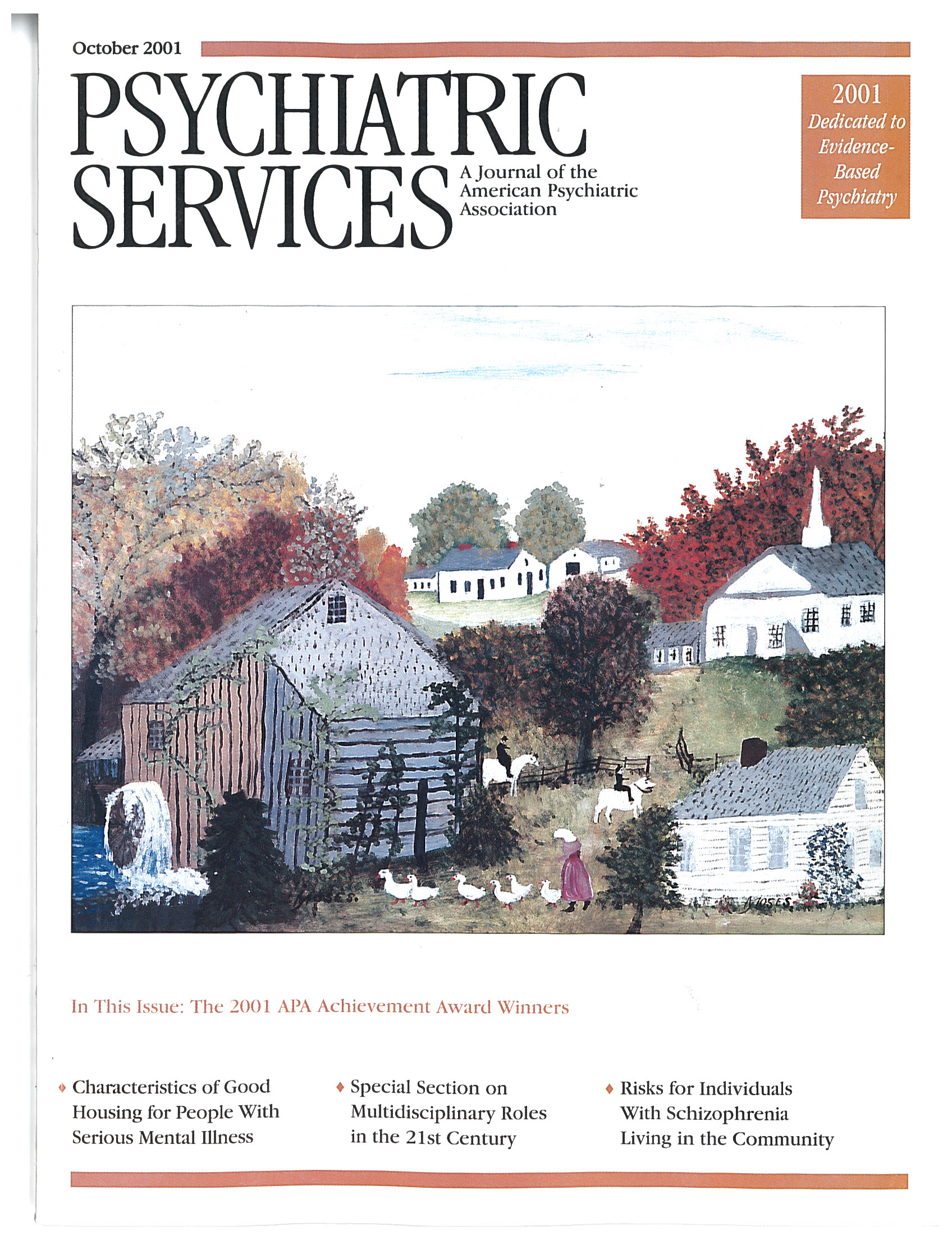Risks in the Community for Persons With Schizophrenia
What happens to our patients after they leave our offices? A disturbing paper published in Psychiatric Services this month indicates that they get into a lot of trouble.
In a study of the risks for individuals with schizophrenia who are living in the community, Brekke and his colleagues observed a group of patients who would have been expected to have a lower risk of trouble, given that they were housed and did not have co-occurring substance use disorders. Yet in three years, half of these individuals had had contact with the police, and a third were victims of violent crime at rates that exceeded those for the general population. The authors draw appropriate conclusions about the reasons, and their data begin to provide answers. But there are two other issues that I think are also important.
The first issue is the ubiquity of substance use. Although patients with a current diagnosis of comorbid substance abuse were excluded, 88 percent of the subjects had used illegal drugs before they entered the study, which would have increased their risk of becoming the victims of crime. Just why people who have schizophrenia so often use illegal substances needs to be studied. Potential reasons include self-medication of the illness itself, self-treatment of the side effects of medication, and boredom—persons with schizophrenia often are disabled and have little to do. But until this question is studied, the real reasons will remain unknown.
A second issue that Brekke and associates did not address is the urban environment. In theory, a city is a tough place for a person who has schizophrenia. Schizophrenia impairs a person's ability to integrate his or her experiences and emotions and to filter out repetitive and unimportant stimuli. Cities are generally high-stimulation environments that present many experiences that a person must integrate and many repetitive and unimportant stimuli that a person must filter out. Perhaps they are not suitable places for people with schizophrenia.
The authors do give us a hint when they compare their data with data obtained in a city in which "well-developed assertive community treatment teams strive to keep individuals who have schizophrenia in the community." In that other study, the rate of police contact was higher, which prompts the question, Are we doing our more severely ill patients any favors by so assertively keeping them in the community, when the community is almost always an urban environment? Are there alternatives that might meet their needs better?
A good study raises more questions than it answers. The study by Brekke and his colleagues has done just that.



